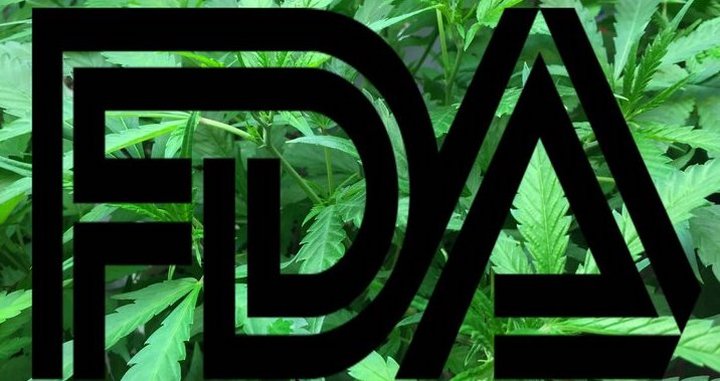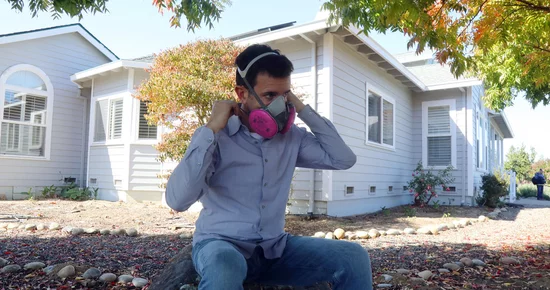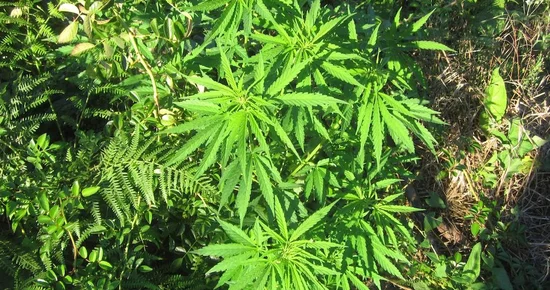WEED FEED / John Ross Ferrara / Monday, Dec. 24, 2018 @ 12:55 p.m.
Weed Feed: FDA Recognizes ‘Potential Opportunities’ for Cannabis and CBD Now That Hemp is Legal

The Food and Drug Administration issued a statement following President Trump’s signing of the 2018 Farm Bill last week, which legalized industrial hemp at the federal level.
In the statement, the FDA said that although it remains committed to prohibiting potentially false claims made by companies selling cannabis or cannabis-derived products, it will work to establish a framework for allowing new types of cannabis and CBD products to be sold.
“We recognize the potential opportunities that cannabis or cannabis-derived compounds could offer and acknowledge the significant interest in these possibilities,” the FDA wrote. “We’re committed to pursuing an efficient regulatory framework for allowing product developers that meet the requirements under our authorities to lawfully market these types of products.”
Read more from the FDA below:
Today, the Agriculture Improvement Act of 2018 was signed into law. Among other things, this new law changes certain federal authorities relating to the production and marketing of hemp, defined as cannabis (Cannabis sativa L.), and derivatives of cannabis with extremely low (less than 0.3 percent on a dry weight basis) concentrations of the psychoactive compound delta-9-tetrahydrocannabinol (THC). These changes include removing hemp from the Controlled Substances Act, which means that it will no longer be an illegal substance under federal law.
Just as important for the FDA and our commitment to protect and promote the public health is what the law didn’t change: Congress explicitly preserved the agency’s current authority to regulate products containing cannabis or cannabis-derived compounds under the Federal Food, Drug, and Cosmetic Act (FD&C Act) and section 351 of the Public Health Service Act. In doing so, Congress recognized the agency’s important public health role with respect to all the products it regulates. This allows the FDA to continue enforcing the law to protect patients and the public while also providing potential regulatory pathways for products containing cannabis and cannabis-derived compounds.
We’re aware of the growing public interest in cannabis and cannabis-derived products, including cannabidiol (CBD). This increasing public interest in these products makes it even more important with the passage of this law for the FDA to clarify its regulatory authority over these products. In short, we treat products containing cannabis or cannabis-derived compounds as we do any other FDA-regulated products — meaning they’re subject to the same authorities and requirements as FDA-regulated products containing any other substance. This is true regardless of the source of the substance, including whether the substance is derived from a plant that is classified as hemp under the Agriculture Improvement Act. To help members of the public understand how the FDA’s requirements apply to these products, the FDA has maintained a webpage with answers to frequently asked questions, which we intend to update moving forward to address questions regarding the Agriculture Improvement Act and regulation of these products generally.
In view of the proliferation of products containing cannabis or cannabis-derived substances, the FDA will advance new steps to better define our public health obligations in this area. We’ll also continue to closely scrutinize products that could pose risks to consumers. Where we believe consumers are being put at risk, the FDA will warn consumers and take enforcement actions.
In particular, we continue to be concerned at the number of drug claims being made about products not approved by the FDA that claim to contain CBD or other cannabis-derived compounds. Among other things, the FDA requires a cannabis product (hemp-derived or otherwise) that is marketed with a claim of therapeutic benefit, or with any other disease claim, to be approved by the FDA for its intended use before it may be introduced into interstate commerce. This is the same standard to which we hold any product marketed as a drug for human or animal use. Cannabis and cannabis-derived products claiming in their marketing and promotional materials that they’re intended for use in the diagnosis, cure, mitigation, treatment, or prevention of diseases (such as cancer, Alzheimer’s disease, psychiatric disorders and diabetes) are considered new drugs or new animal drugs and must go through the FDA drug approval process for human or animal use before they are marketed in the U.S. Selling unapproved products with unsubstantiated therapeutic claims is not only a violation of the law, but also can put patients at risk, as these products have not been proven to be safe or effective. This deceptive marketing of unproven treatments raises significant public health concerns, as it may keep some patients from accessing appropriate, recognized therapies to treat serious and even fatal diseases.
Additionally, it’s unlawful under the FD&C Act to introduce food containing added CBD or THC into interstate commerce, or to market CBD or THC products as, or in, dietary supplements, regardless of whether the substances are hemp-derived. This is because both CBD and THC are active ingredients in FDA-approved drugs and were the subject of substantial clinical investigations before they were marketed as foods or dietary supplements. Under the FD&C Act, it’s illegal to introduce drug ingredients like these into the food supply, or to market them as dietary supplements. This is a requirement that we apply across the board to food products that contain substances that are active ingredients in any drug.
We’ll take enforcement action needed to protect public health against companies illegally selling cannabis and cannabis-derived products that can put consumers at risk and are being marketed in violation of the FDA’s authorities. The FDA has sent warning letters in the past to companies illegally selling CBD products that claimed to prevent, diagnose, treat, or cure serious diseases, such as cancer. Some of these products were in further violation of the FD&C Act because they were marketed as dietary supplements or because they involved the addition of CBD to food.
While products containing cannabis and cannabis-derived compounds remain subject to the FDA’s authorities and requirements, there are pathways available for those who seek to lawfully introduce these products into interstate commerce. The FDA will continue to take steps to make the pathways for the lawful marketing of these products more efficient.
These pathways include ways for companies to seek approval from the FDA to market with therapeutic claims a human or animal drug that is derived from cannabis. For example, in June 2018, the FDA approved a drug, Epidiolex, that contains cannabis-derived CBD for the treatment of seizures associated with two rare and severe forms of epilepsy. That approval was based on adequate and well-controlled clinical studies, which gives prescribers confidence in the drug’s uniform strength and consistent delivery that support appropriate dosing needed for treating patients with these complex and serious epilepsy syndromes.
In addition, pathways remain available for the FDA to consider whether there are circumstances in which certain cannabis-derived compounds might be permitted in a food or dietary supplement. Although such products are generally prohibited to be introduced in interstate commerce, the FDA has authority to issue a regulation allowing the use of a pharmaceutical ingredient in a food or dietary supplement. We are taking new steps to evaluate whether we should pursue such a process. However, the FDA would only consider doing so if the agency were able to determine that all other requirements in the FD&C Act are met, including those required for food additives or new dietary ingredients.
It should also be noted that some foods are derived from parts of the hemp plant that may not contain CBD or THC, meaning that their addition to foods might not raise the same issues as the addition of drug ingredients like CBD and THC. We are able to advance the lawful marketing of three such ingredients today. We are announcing that the agency has completed our evaluation of three Generally Recognized as Safe (GRAS) notices related to hulled hemp seeds, hemp seed protein and hemp seed oil and that the agency had no questions regarding the company’s conclusion that the use of such products as described in the notices is safe. Therefore, these products can be legally marketed in human foods for these uses without food additive approval, provided they comply with all other requirements and do not make disease treatment claims.
Given the substantial public interest in this topic and the clear interest of Congress in fostering the development of appropriate hemp products, we intend to hold a public meeting in the near future for stakeholders to share their experiences and challenges with these products, including information and views related to the safety of such products.
We’ll use this meeting to gather additional input relevant to the lawful pathways by which products containing cannabis or cannabis-derived compounds can be marketed, and how we can make these legal pathways more predictable and efficient. We’ll also solicit input relevant to our regulatory strategy related to existing products, while we continue to evaluate and take action against products that are being unlawfully marketed and create risks for consumers.
At the same time, we recognize the potential opportunities that cannabis or cannabis-derived compounds could offer and acknowledge the significant interest in these possibilities. We’re committed to pursuing an efficient regulatory framework for allowing product developers that meet the requirements under our authorities to lawfully market these types of products.
The FDA, an agency within the U.S. Department of Health and Human Services, protects the public health by assuring the safety, effectiveness, and security of human and veterinary drugs, vaccines and other biological products for human use, and medical devices. The agency also is responsible for the safety and security of our nation’s food supply, cosmetics, dietary supplements, products that give off electronic radiation, and for regulating tobacco products.
###
The Weed Feed is a weekly column written by John Ross Ferrara.
The Weed Feed is a one-stop shop for the best local and national cannabis news.
Each week, original content will be posted to the page, as well as various other stories from around the country.
These aggregated stories are organized into six separate sections. The News (basic news), The Biz (financial news), The Life (features), The Game (sports), The Fame (celebrity), and the Grub (food).
The News
The Biz
The Life
The Game
The Fame
The Grub
The Humboldt Chronicles
- A Congressperson Dropped By
- A Chat With Jesse Duncan
- September NEWS ROUNDUP!
- Trad Ag Vs Canna Ag
- A Fabulous News Roundup
- All About Budtending
- A Conversation With Papa & Barkley
- Revisiting A Market Disruption
From the Outpost
- Trump Signs Executive Order Reclassifying Cannabis, Clearing Major Hurdle for Medical Research
- Trump is About to Reclassify Cannabis, Easing Restrictions on Banking, Taxes and Research, According to Multiple News Outlets
- Crisp Lounge and Cannabis Dispensary in Eureka is Closing; Owner Says the City Has ‘Too Many’ Weed Stores
- WEED TAX NIXED: Humboldt County Supervisors Zero Out Measure S, Citing Industry Woes
- Search Warrants Served on Illegal Weed Grows Deep in SoHum; Big Fines Expected, Says Sheriff’s Office
- Humboldt Marijuana Enforcement Team Part of Multi-Agency Raid on Grow in Northern Mendocino County
- Newsom Signs Cannabis Tax Relief Bill Into Law
- Weed Tax Hike Repealed: California Legislature Passes AB 564, Which Will Bring the Cannabis Excise Tax Rate Back Down to 15 Percent Once Gov. Newsom Signs It Into Law
The Feed
- Marijuana Business Daily: District of Columbia cannabis dispensary founder pleads guilty to tax evasion
- The Emerald Magazine : A Regal Smoke: Kingsroad’s Grandpa’s Stash x Lemon Kush Crowns
- Marijuana Business Daily: 5 things to know before starting your career in the marijuana industry
- Leafly: Product Picks for this Memorial Day Weekend
- Marijuana Business Daily: Pennsylvania Senate rejects adult-use cannabis bill with state-run retail
- Marijuana Business Daily: MSO TerrAscend acquires cannabis stores in Ohio, New Jersey
- Marijuana Business Daily: What cannabis pioneer Christine Apple learned while building her edibles business
- Marijuana Business Daily: Wisconsin lawmakers shoot down governor’s marijuana legalization effort
- Marijuana Business Daily: New York quarantines $10 million worth of select cannabis products
- The Emerald Magazine : Growing Your Cannabis: A Regenerative Approach to Wellness and Self-Sufficiency






(WHAT?)
CHOOSE YOUR COMMENT EXPERIENCE